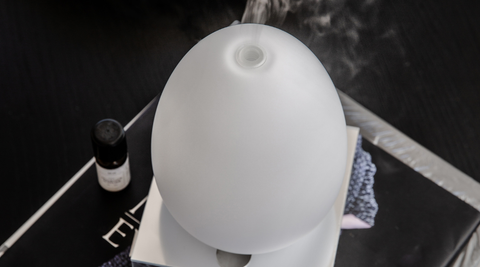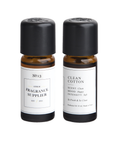There’s something powerfully personal about scent—something that reaches beyond the surface and into the heart of our memories, moods, and decisions. At Stockholm Fragrance, we believe fragrance isn’t just about smelling good. It’s about feeling good, remembering deeply, and living fully.
A compelling example comes from scent researcher and author Rachel Herz, who shared a story from her childhood in her book The Scent of Desire. As a five-year-old, she and her family were enjoying a perfect day: driving through the American countryside, the sun shining, the windows down, and everyone in a joyful mood.
Suddenly, an unfamiliar and pungent scent filled the car. Her mother smiled and said, “I love that smell.” That moment, infused with warmth, laughter, and emotional connection, was forever imprinted on Rachel’s mind—linking the experience to the scent of skunk. As an adult, that smell now evokes nothing but happiness for her.
Why? Because scent becomes meaningful when it’s emotionally charged. According to Herz, the moment we encounter a new scent, our brains begin forming neural connections that tie it to our emotional state. This process happens in the limbic system—the area of the brain responsible for emotions and memory—and is uniquely connected to the olfactory center, giving scent unparalleled access to our subconscious mind.
The Science Behind Scent and Emotion
Fragrance is often underestimated, yet it's one of the most powerful sensory tools we have. When used intentionally, it can influence behavior, improve mood, reduce stress, support memory, and even enhance cognitive performance.
As Theresa Molnar, Executive Director of the Sense of Smell Institute, explains:
“Fragrances can have positive effects on mood, stress reduction, sleep improvement, self-confidence, and physical and cognitive performance.”
Fragrance Marketing: More Than Just Smelling Good
Many assume that scent marketing is simply about adding a pleasant aroma to a space—but it’s far more profound. In fact, signature scents are becoming key to brand identity.
A well-known shopping mall in Stockholm was among the first in Sweden to implement a signature fragrance. The first time a visitor walks into the mall, they have no association with the scent. But if they have a positive experience—like making a purchase—the brain releases feel-good chemicals such as endorphins.
This moment of satisfaction, combined with the scent, creates a powerful emotional memory. So the next time the visitor enters the mall and smells that same fragrance, their brain recalls that positive experience, boosting mood and subconsciously encouraging them to shop again. It’s a natural reward loop—fragrance becomes the silent salesperson.
How Scent Enhances Experiences and Loyalty
For hotels, spas, shops, and wellness spaces, the benefits of incorporating a consistent scent experience are immense. A carefully selected fragrance enhances the atmosphere, reinforces branding, and creates emotional connections that customers remember—and return to.
Even better, offering take-home fragrance products, such as diffuser oils or scented candles, allows guests to extend their experience. When they use the same scent at home, they’re emotionally transported back to your space. That’s how brands stay “top of mind” in the most powerful, emotional way.
Using Scent to Support Learning and Focus
Scent doesn’t just support mood—it enhances memory. Studies show that if you study while surrounded by a particular scent—like lemongrass—and then inhale that same scent during a test or presentation, your ability to recall information improves significantly. This is because the olfactory system is directly connected to memory recall, especially under pressure.
Why Scent Will Matter Even More in a Digital World
As many daily services become digital, our physical experiences become more precious. The places we choose to visit in person—whether it's a boutique, gallery, spa, or café—must offer something sensory, emotional, and memorable.
In a world of screens and sameness, scent is the secret ingredient that can differentiate your brand and deepen your customer connection. It turns a visit into a moment, a transaction into an experience.
In Summary
Never underestimate the power of scent. It’s our most emotional sense—and it directly influences how we feel, think, remember, and choose. For brands, businesses, and even individuals looking to enrich their space, fragrance is more than ambiance—it’s strategy.
Whether you're creating a calm retreat at home, designing a memorable retail experience, or elevating your hotel’s atmosphere, Stockholm Fragrance offers elegant, emotionally resonant solutions that stay with your customers long after they’ve left the room.
Your story starts with scent. Let’s make it unforgettable.



